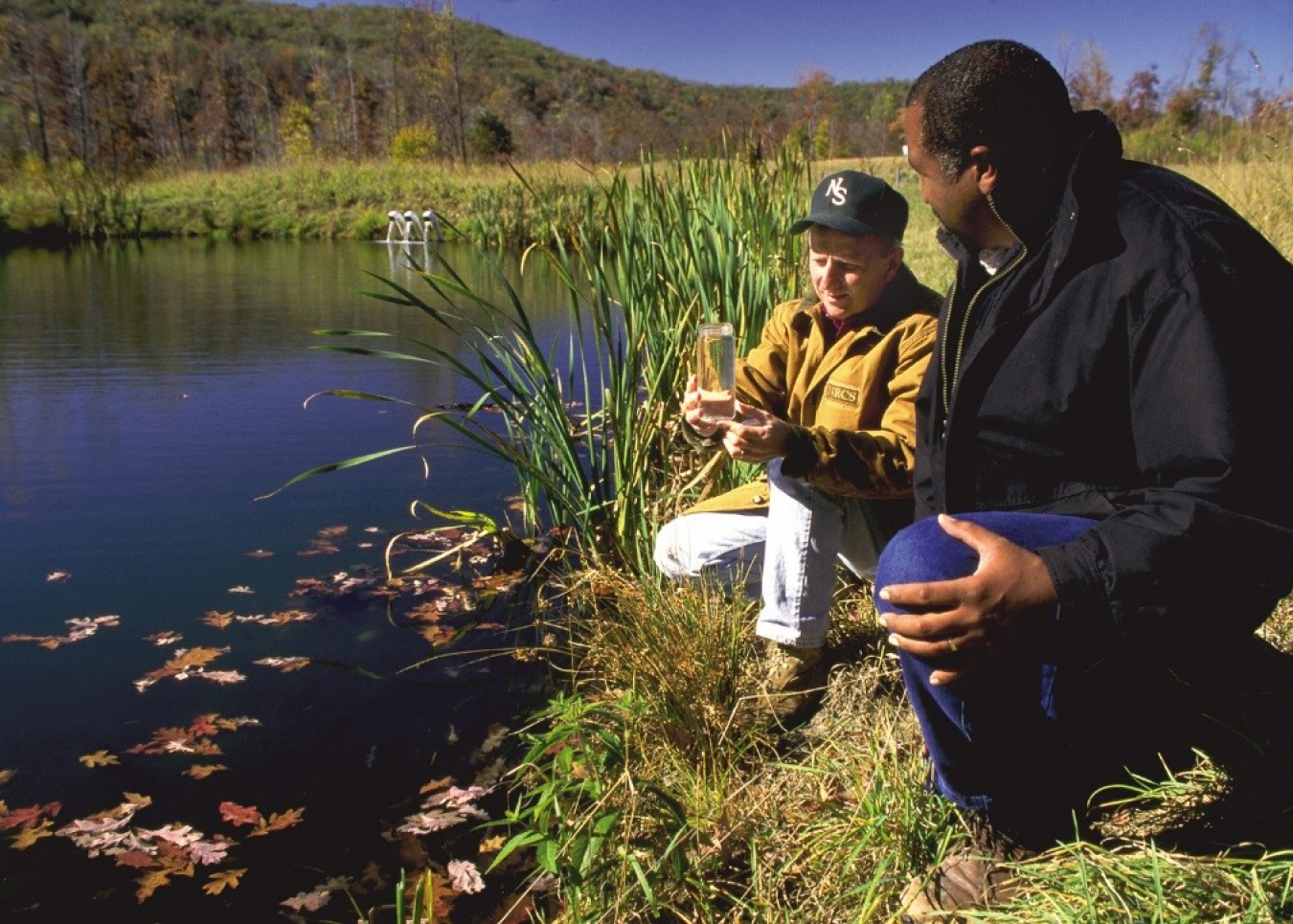
Photo courtesy of Natural Resources Conservation Service, U.S. Department of Agriculture.
The job of senior physical scientist is an advanced position in bioenergy, in the agriculture, life, and physical sciences career sub-sector. Job seekers with agriculture, life, and physical sciences backgrounds or a career in the sciences could consider this type of advanced bioenergy job.
Senior physical scientists lead management and design efforts on a project or program, overseeing staff and project engineers conducting a wide variety of planning, design, analysis, and research tasks including conceptual designs, engineering reports or studies, detailed designs including drawings and specifications, and cost estimates. Those specializing in chemistry provide design direction for present and future research and development, including bench scale experimentation and scale-up to pilot, demonstration, and commercial scales. They also oversee various performance testing activities ranging from development to final product qualification testing. People in these positions may have careers in bioenergy physical science.
Senior Physical Scientist
| Alternate Title(s) | Senior Chemist; Senior Environmental Scientist; Senior GIS Specialist; Senior Hydrologist; Senior Soil Sceintist |
| Education & Training Level Description | Doctorate in the Physical Sciences, Engineering, or a related field is required. |
| Experience | 7+ years |
| Job Skills |
|
| Job Profile | Bioenergy crop production systems involve complex interactions with the physical environment in which these crops are grown. Plants require water resources and nutrients present in the soil for growth. The expansion of biomass production will require individuals with a thorough understanding of agricultural management practices that are not only economical for producers and growers but also sustain important physical components of the environment such as soil and water. Physical scientists can provide this expertise, using their knowledge of the earth, its components, and its processes to guide important land management decisions. They are also uniquely qualified to work along many other components of the bioenergy supply chain, as their knowledge of the chemical sciences has important applications for the sector’s engineering and manufacturing activities. As such, there are a broad range of pathways that they can follow. Examples of bioenergy related careers in the physical sciences include: Chemical Scientists Hydrologists Soil Scientists Environmental Scientists At the senior or supervisory level, senior hydrologists, soil scientists, and environmental scientists will lead management and design efforts on a project or program, overseeing staff and project engineers conducting a wide variety of planning, design, analysis, and research tasks including conceptual designs, engineering reports or studies, detailed designs including drawings and specifications, and cost estimates. A Ph.D. in hydrology, soil science, environmental science, civil or environmental engineering, or a related field is typically required. Significant experience in the field and professional licensure may substitute for additional education. Individuals should demonstrate experience in research, planning, design, and management of leading initiatives. A professional background in the bioenergy sector is highly preferable. At the senior or supervisory level, senior chemists provide design direction for present and future research and development, including bench scale experimentation and scale up to pilot, demonstration, and commercial scales. They would also oversee various performance testing activities ranging from development to final product qualification testing. A Ph.D. in chemistry, chemical engineering, or a related field is highly preferred. Significant experience in the field and professional licensure may substitute for additional education. Individuals at this level should demonstrate experience through high-level publications and leadership positions. A professional background in the bioenergy sector is highly preferable. |
More Advanced Agriculture, Life, and Physical Sciences Jobs in Bioenergy
Related Bioenergy Career Resources
Bioenergy Career Exploration Wheel
